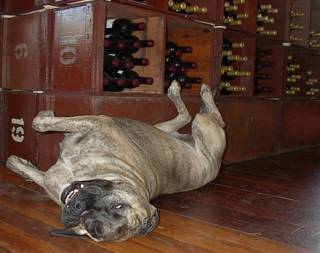Sent to you via Google Reader
"I'm Fontaine Maverick, And John McCain, You Are No Maverick..."
John McCain I know a Maverick, and you, sir, are no Maverick. Truly. I now know Fontaine Maverick, great-great-grand daughter of Samuel Augustus Maverick (1803-1870), and it was he and his sons for which the word was coined. And as she told me in my interview with her Monday night, October 6, 2008 on KGO AM 810, "I'm Fontaine Maverick, and John McCain, you sir are no Maverick."
Samuel Maverick was a Texas cattleman, land baron and politician, so influential that he was one of the signers of the Texas Declaration of Independence. Fiercely independent and equally liberal. Sam became well known for what he didn't do, however. It seems, according to Fontaine, that he had taken some cattle in lieu of a debt he was owed. He let them roam on an island off of Texas, and for whatever reason, didn't brand them. So, any unbranded cattle became known as Maverick's. Now, this more than likely wasn't an act of revolt. No one knows for sure, but Maverick really wasn't much of a cattleman. He was also shrewd, later on in life if cattle weren't branded, he would often claim them.
Sam was also very spirited and free minded. It was because of this that in 1867 the term Maverick was first cited as being used to describe someone with an independent streak, someone not branded.
Sam was very prolific, and his grandson Fontaine Maury Maverick (1895-1954), Fontaine Maverick's grand father, followed in the spirit of his grandfather. Not satisfied with the family putting one word in the American lexicon, Maury is credited with creating the word "gobblygook." He served in the 74th and 75th Congress from Texas and was a huge champion of the Roosevelt's New Deal.
In fact, according to Fontaine, Maury wanted it even more to the "left." He served in congress with a group of other free wheelers and they became known in the Texas media as "The Mavericks." Maury had a colorful and passionate time in public life. According to Wikepedia's entry on him, "He was elected to the Seventy-fourth Congress in 1934 with support from the Hispanic population of his district, and re-elected to the Seventy-fifth. In the House, he was an ardent champion of Franklin Delano Roosevelt's New Deal. He angered the conservative Democrats running the party back in Texas, including John Nance Garner. He was defeated in the primary for a third term in 1938. He returned to Texas where he was elected Mayor of San Antonio, again with support from minority voters, serving from 1939 to 1941, when the conservatives labelled him a Communist and defeated him. During World War II, he worked for the Office of Price Administration, the Office of Personnel Management, and served on the War Production Board and the Smaller War Plants Corporation. After the war, he practiced law i...

